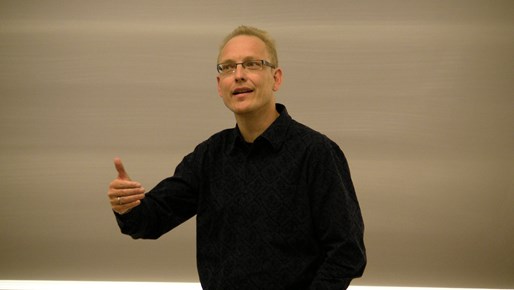Doping and athletes' legal rights

A prominent theme at the INHDN conference was the WADA whereabouts system and the questions this rule has raised regarding the relation between the anti-doping regulation, the law, athletes' rights and the making of a level playing field.
Random ruling
Professor Verner Møller from the Department of Sports Science at the University of Aarhus, Denmark, considers the WADA whereabouts sanction system to be “managed arbitrarily without sufficient protection of the athlete’s rights and it collides with the ideal of a level playing field.”
At Tour de France in 2007 the Danish professional cyclist Michael Rasmussen was withdrawn from the race and fired by his team Rabobank for "violating internal rules”. Michael Rasmussen lied about his whereabouts but according to the research done by Verner Møller, two of the four warnings given to Rasmussen were wrong as per the WADA code. Hence Møller claims that Michael Rasmussen was subject to negative discrimination and therefore lost the chance to climb not only the Alps, but also the podium as winner of Tour de France two years ago.
“It is high time that WADA begin developing a strategy for overseeing anti-doping campaigners concerning their responsibility to act fairly, impartially and within the letter and the spirit of the governing rules”. This was the clear conclusion from Professor Verner Møller after having presented his recent research on the Michael Rasmussen case.
Also Dag Vidar Hanstad, Professor from the Norwegian School of Sport Sciences, who earlier this year defended his PhD dissertation “Anti-Doping in Sport. A Study of Policy Development since 1998”, talked about inconsistency in WADA’s whereabouts system. Hanstad’s studies reveals that there is a lack of harmonization on both international and national level in the treatment of athletes regarding how the WADA code is interpreted and managed.
The WADC – World Anti-doping Code
Jens Evald, Chairman of Anti-doping Denmark, emphasised that the main goal of the WADC is efficiency in the fight against doping. This goal is reached by creating a set of sport specific rules made by WADA and can be characterised as private law.
Evald’s point of critique in the fight against doping is the private anti-doping programmes, which he characterises as pure spin. “They hold no rule of law, they are not monitored by anyone, hence no control,” he said.
These private programmes mean a great risk of abuse and according to Evald they should be banned. This is also why Evald thinks that WADA must be monitored to make sure that the balance between the legal rights and the system considerations is kept at a reasonable level.
The burden of proof
According to the WADC art. 3., the burden of proof in many cases lie with the athlete. This so called Strict liability makes a person responsible for the damage and loss caused by his/her acts and omissions regardless of culpability (or fault in criminal law terms).
“If the substance is in your body, you have committed a (doping) crime” – this seems to be the rule that applies for athletes, Professor Mike McNamee from Swansea University in Wales told the audience. But this is in complete contrast to the legal system where the party that makes the claim has the burden of proof.
Professor Ivan Waddington, from the Norwegian School of Sports Science, Norway, claimed that “Sport is a prison of measured time”. He thinks that professional athlete’s sacrifices a lot to the sport but with the new implemented WADA whereabouts rules they are also forced to sacrifice their entire private life and submit themselves to constant surveillance and control.
Waddington made a comparison between the monitoring of athletes and paedophiles.
“Paedophiles on parole have to deliver less information on their doings than a sportsman whose only crime is his ambitions of being in the top of his sport,” Waddington said.
Ivan Waddington called for other methods to test the athletes instead of the extreme control that the current WADA whereabouts and anti-doping system impose on them.
Athletes' ownership of the system
At the final plenary discussion Professor Barrie Houlihan from Loughborough University, England, stated that “We have constructed an anti-doping system for the athletes without giving the athlete ownership of the system”.
This point seemed to be a general stance among the speakers at the conference: Athletes must be more involved in the making of the WADA code to assure that the system is reasonable and takes into consideration the athletes’ legal rights.
Ivan Waddington referred to Emilie Durkheim who said, that “contracts should not be legitimated through compulsion (WADA code) but through spontaneity (voluntarily)”. But the WADA code is not an optional choice for the athletes, they actually have no choice but to follow if they want to compete.
FACTS:
The International Network of Humanistic Doping Research (INHDR)
INHDR was established in 2002. The purpose of the network is to understand the doping phenomenon in its broadest cultural, social and political dimensions and to offer perspectives that may differ from the standard anti-doping doctrine that underlies the official “War on drugs” in sport. Next INHDR conference will take place in 2011.
http://www.doping.au.dk/
Podcasts from the conference and interviews with some of the speakers can be found through this link:
http://www.podcast.au.dk/?p=home
LINKS:
More about Michael Rasmussen:
http://en.wikipedia.org/wiki/Michael_Rasmussen
www.feltet.dk/michaelrasmussen/





